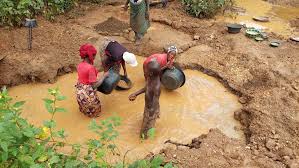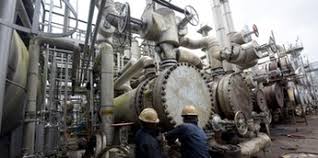The Nigerian government is stepping up its crackdown on illicit mining, having detained scores of unlicensed miners since April on suspicion of stealing lithium, a vital mineral used in batteries for power systems, cellphones, and electric cars.
The recent arrests coincide with Nigeria’s efforts to control the extraction of vital minerals, suppress illicit activities, and maximize the country’s mineral riches.
The world’s need for lithium, tin, and other minerals has increased due to the clean energy transition, which is moving away from fossil fuels like coal, oil, and gas and towards renewable energy and batteries.
Laptops 1000The nascent sector in the country is plagued by an abundance of illegal mines due to widespread corruption among regulatory authorities and the remote locations of mineral reserves with little government presence.
According to officials, money made from illegal mining operations has armed militias in the county’s north.
The most recent arrests took place in mid-May after a combined military and police force raided a remote market in Kishi, in the south-west state of Oyo State.
The market, which was formerly well-known for selling agricultural goods, is now the hub for the illegal trade in lithium that is mined in remote locations, according to locals.
According to the state administration and residents, the three-day operation resulted in the arrest of 32 people, including two Chinese nationals, local laborers, and mineral traffickers. Lithium loads were also apprehended.
Leader of the Kishi community Jimoh Bioku claimed that Chinese nationals had previously conducted “clandestine searches” for the mineral at isolated locations tucked away in the woods before “they engaged people to dig for them and turned the market into a transit point.”
“We reported to the state government because we were particularly worried about the insecurity that usually follows illegal mining,” he said, expressing the community’s concerns.
China dominates the global EV supply chain, and this is also the case in Nigeria, where vulnerable individuals from the country’s far north—which has been devastated by violence and growing desertification—are largely employed by Chinese-owned mining corporations for labor in the nation’s mining operations.
Chinese individuals and businesses are regularly in the news due to their involvement in illegal mining, labor abuses, and environmental harm. In the past two months, Chinese nationals have been arrested in at least three instances of illicit mining.
President Bola Tinubu has frequently held the illicit mining industry responsible for the escalating hostilities in the country’s north and has urged the international community to assist in putting an end to the issue, which gives armed groups the money they need to maintain and resupply weapons.
In response to a Times of London story last year that claimed Chinese miners were paying terrorists to get entry, the embassy issued a statement last year saying that it “always encouraged and urged the Chinese companies and nationals in Nigeria to abide by the laws and regulations of Nigeria.”
Laptops 1000Since Australia and Chile, the two biggest producers of lithium in the world, are unable to meet the increasing demand for the metal globally, Nigeria is emerging as a new lithium source in Africa.
However, illicit operations flourish in Nigeria’s extractive industry, depriving the government of much-needed money, according to Emeka Okoro, whose Lagos-based SBM Intelligence business has studied the financing of terrorism and illicit mining in northern Nigeria.
Additionally, violence and the consequences of climate change—such as the quick conversion of northern Nigeria’s once-fertile terrain into unusable, parched sand—have resulted in the production of a cheap labor force for mining sites.
The arrests of “both Chinese nationals and young Hausa boys from conflict-affected regions underscore a troubling pattern,” Okoro said. “The socioeconomic strain stemming from conflict and the repercussions of climate change has given rise to a vulnerable demographic desperate for survival.”
To fight resource theft that causes losses of $9 billion to the government annually, according to the country’s extractive industry transparency watchdog, the West African nation has set up a 2,200-strong “corps of mining marshals” earlier in the year.
The new corps is intended to stop “the nefarious activities of illegal miners,” according to Segun Tomori, a spokesman for the solid minerals ministry, even though the issue is still being handled by the current law enforcement organizations.
In April, the mining corps detained two trucks carrying lithium outside Abuja, the country’s capital, prior to the Kishi raid. Four Chinese nationals were taken into custody and tonnes of lithium were seized when the corps stormed a facility in Karu, Nasarawa State, close to Abuja, later that month. The cases are currently before the court, according to Tomori.
On April 22, a federal court in the north-central region of Ilorin found two Chinese nationals guilty of engaging in illicit mining and sentenced them to one year in prison, with the possibility of an out-of-court settlement.
Because Nigeria has long disregarded the solid minerals industry, certain towns, like the tin-rich town of Jos in the north central region, are able to rely solely on subsistence mining as a source of income.
According to Tomori, the government is pushing artisanal miners in such villages to organize into cooperatives and do their business lawfully.




















